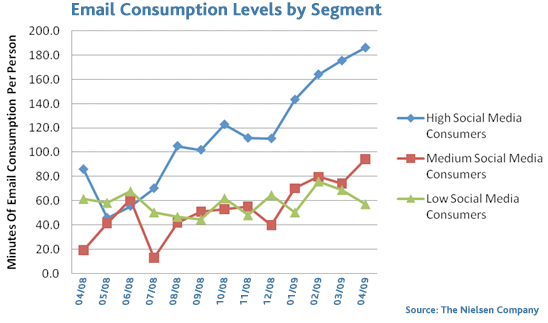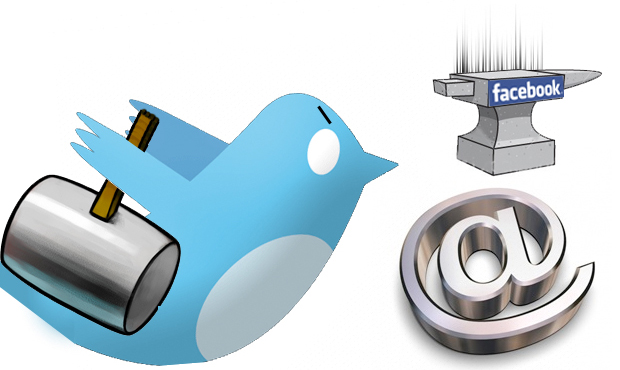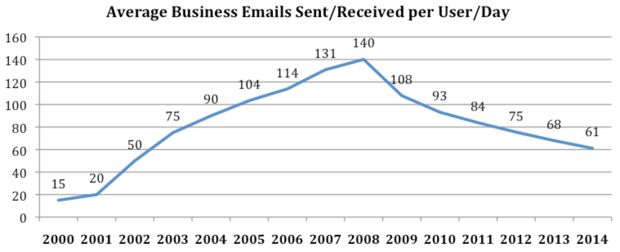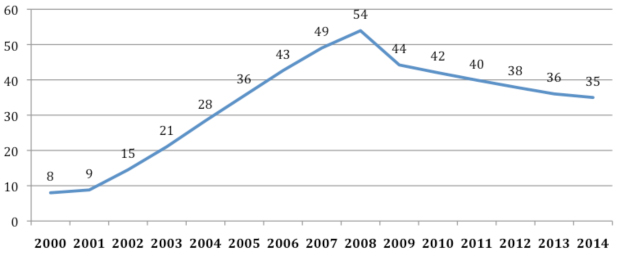Article: Open Thread: The End of Email? | Fast Company
Written on 6:35 AM by RadhikaR
Facebook COO Sheryl Sandberg sparked a firestorm this week with her bold assertion that email "is probably going away."
But she's not the first to make this claim. Just do a quick Google search, and you'll find plenty of bloggers warning of email's demise. (You'll also find loads of puns saying we should "Google Wave" goodbye to email--so much for that.) Even the Wall Street Journal published an article last year arguing that Facebook and Twitter were now king among online communication tools ("Email has had a good run...but its reign is over"), echoing Sandberg's beliefs.
Is email really finished?
According to Sandberg, only 11% of teens email daily, a statistic she sees as a sign of the coming transition to SMS and social networks. But in 2005, another study found that less than 5% of American teens aged 12-17 preferred email over instant messaging for digital communication. Now, five years later, many of those teens are entering the business world--but we haven't seen AIM, Yahoo Messenger, and G-Chat overtake good old-fashioned email.
At least not yet.
A study by the Nielsen Co. of email consumption in Australia, Brazil, several European countries, and the U.S., found that usage rose 21% between August 2008 to August 2009, reaching 276.9 million people. During that same period, users of social-network sites leaped 31% to 301.5 million people. Because of this sharp growth, Internet communities like Facebook are eating away at the amount of time users spend communicating through traditional messenging services: Between 2003 and 2009, time spent on email sites dropped 41%; social networks, on the other hand, now represent 22% of total user Internet time--up 24% since last year.
Another recent Nielsen study, however, found that social networks have actually helped increase email consumption. "We decided to churn some quick data to test our hypothesis that 'Consumption of social media decreases email use,'" explained Jon Gibs, VP of media analytics for Nielsen. "It actually appears that social media use makes people consume email more, not less, as we had originally assumed."

To further complicate the situation, tech market research firm the Radicati Group released a report in April which estimated that social networks will grow at a remarkable pace in the next few years--but it also showed that worldwide email usership would balloon as well. "The number of worldwide email accounts is projected to increase from over 2.9 billion in 2010, to over 3.8 billion by 2014," the report said. "However, Social Networking currently represents the fastest growing communication technology among both consumers and business users, with over 2.1 billion accounts in 2010 which are projected to grow to over 3.6 billion accounts by 2014."
The Radicati Group's report also showed how daily email use has been dropping for both consumers and business people--clearly an effect of social networks.
Average Number of Consumer Emails Sent/Received per User/Day:
So is Sandberg right? Are social networks and SMS replacing traditional messenging services? Is it even fair to pit these services against each other?
After all, what is "email" anyway? Today, services such as Gmail now include elements of chat, status updates, document editing functionality, and more--it's impossible to clearly define what makes a social network, and what makes an email service.
"There's a lot of grey area," says Todd Yamasaki, a market research analyst at Radicati. "It's the combination of everything, not just social networks, that's contributing to this decrease in email usage."
"[But] I think what Sandberg said was a bit premature."
So far, it seems the evidence is inconclusive. What's your take?
My emails have become so boring over time it is a big "notification" service in many respects and it is no longer the platform where "conversations" are had. What about you? I am experiencing that other forms of social media have given volumes a bit of a boot recently.







E mail going away? No way.